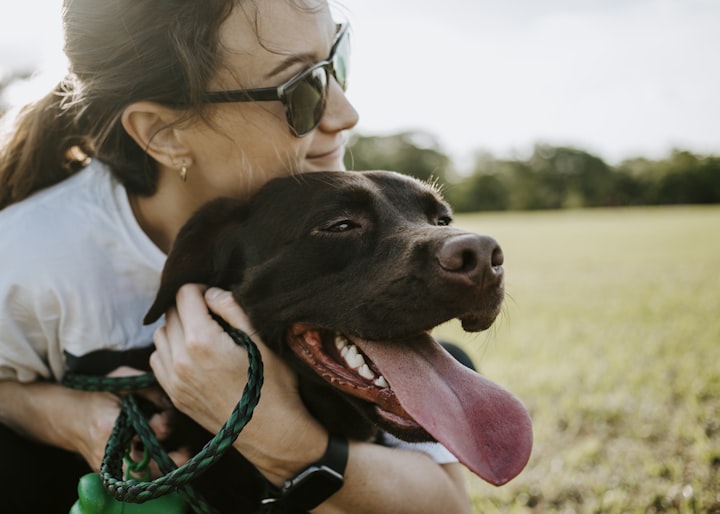20 Essential Dog Training Tips for a Well-Behaved Canine Companion
Tragically, preparing another canine particularly as a first time canine proprietor isn't simple all the time. They can be famously obstinate and just might not have any desire to pay attention to what you need to say.

Introduction: Dog training is an important aspect of responsible pet ownership. It not only helps establish a strong bond between you and your furry friend but also ensures a harmonious coexistence within your household and the wider community. Whether you have a new puppy or an adult dog, implementing effective training techniques is essential. In this article, we will discuss 20 valuable dog training tips that will provide you with a comprehensive guide to shaping your dog's behavior and fostering positive habits.

1).Start Early: The earlier you begin training your dog, the better. Puppies are like sponges, absorbing information quickly. By starting early, you can establish good habits and prevent behavioral problems.
2).Be Consistent: Consistency is key when it comes to dog training. Use the same cues and commands, and maintain a regular training schedule. This will help your dog understand what is expected of them.
3).Use Positive Reinforcement: Reward-based training using treats, praise, and affection is highly effective. Positive reinforcement helps reinforce desired behaviors and strengthens the bond between you and your dog.
4).Understand Body Language: Learning to interpret your dog's body language is crucial for effective communication. Understanding signs of fear, stress, or aggression can help you address potential issues and keep your dog safe.
5).Set Realistic Expectations: Every dog learns at their own pace, so set realistic expectations. Some dogs may take longer to grasp certain commands or behaviors. Patience is key during the training process.
6).Establish a Routine: Dogs thrive on routine. Establish a consistent daily routine for feeding, exercise, and training. This will provide structure and stability, making it easier for your dog to understand and follow commands.
7).Socialize Your Dog: Early and ongoing socialization is vital for a well-rounded dog. Expose your dog to different environments, people, and other animals. This will help them become more confident and well-behaved in various situations.
8).Use Clicker Training: Clicker training is a popular and effective technique that uses a distinct sound (click) to mark desired behaviors. Pair the click with a treat to reinforce positive actions.
9).Be Patient and Persistent: Dog training requires time and consistency. Be patient with your dog and remain persistent. Remember that some dogs may require more time to learn and develop new skills.
10).Focus on Basic Commands: Teaching your dog basic commands such as "sit," "stay," "come," and "leave it" is essential for their safety and well-being. Mastering these commands will also make advanced training easier.
11).Use Short Training Sessions: Dogs have short attention spans, especially when they are young. Keep training sessions short (5-10 minutes) and frequent throughout the day to maintain engagement and prevent boredom.
12).Gradually Increase Distractions: Start training in a quiet environment and gradually introduce distractions. This will help your dog learn to focus on you and follow commands even in more challenging situations.
13).Redirect Undesirable Behavior: Instead of punishing your dog for undesirable behavior, redirect their attention to a more appropriate activity. For example, if your dog starts chewing on furniture, offer a chew toy as an alternative.
14).Practice Leash Training: Leash training is crucial for both your dog's safety and your own. Teach your dog to walk calmly on a leash, without pulling or lunging. Use positive reinforcement to reward good leash manners.
15).Keep Training Sessions Fun: Training should be an enjoyable experience for both you and your dog. Incorporate play and rewards to make it fun. A positive and upbeat atmosphere will enhance learning and strengthen your bond.
16).Avoid Harsh Punishments: Physical punishments or harsh corrections are counterproductive and can damage the trust between you and your dog. Focus on positive reinforcement and gentle guidance instead.
17).Train in Different Environments: Training should take place in various locations to generalize learned behaviors. Practice commands in different rooms of your house, your backyard, and public spaces to ensure your dog responds reliably.
18).Be the Pack Leader: Establishing yourself as the pack leader is crucial for effective training. Dogs are instinctually pack animals and respond well to clear leadership. Set boundaries and be consistent with rules and expectations.
19).Consider Professional Training: If you're struggling with training or your dog has specific behavioral issues, consider seeking help from a professional dog trainer. They can provide personalized guidance and techniques to address specific challenges.
20).Never Stop Training: Training should be an ongoing process throughout your dog's life. Even after your dog has mastered basic commands, continue to engage in mental stimulation and reinforce good behavior.
Conclusion: Dog training is an investment of time and effort that yields rewarding results. By following these 20 essential training tips, you can set your dog up for success and cultivate a well-behaved and happy canine companion. Remember, patience, consistency, and positive reinforcement are key elements to effective dog training. Embrace the journey and enjoy the deep and fulfilling bond that training can create between you and your furry friend.






Comments
There are no comments for this story
Be the first to respond and start the conversation.